Some photos and videos from Parliament Square.

Bringing Classical Liberalism to South London
Some photos and videos from Parliament Square.
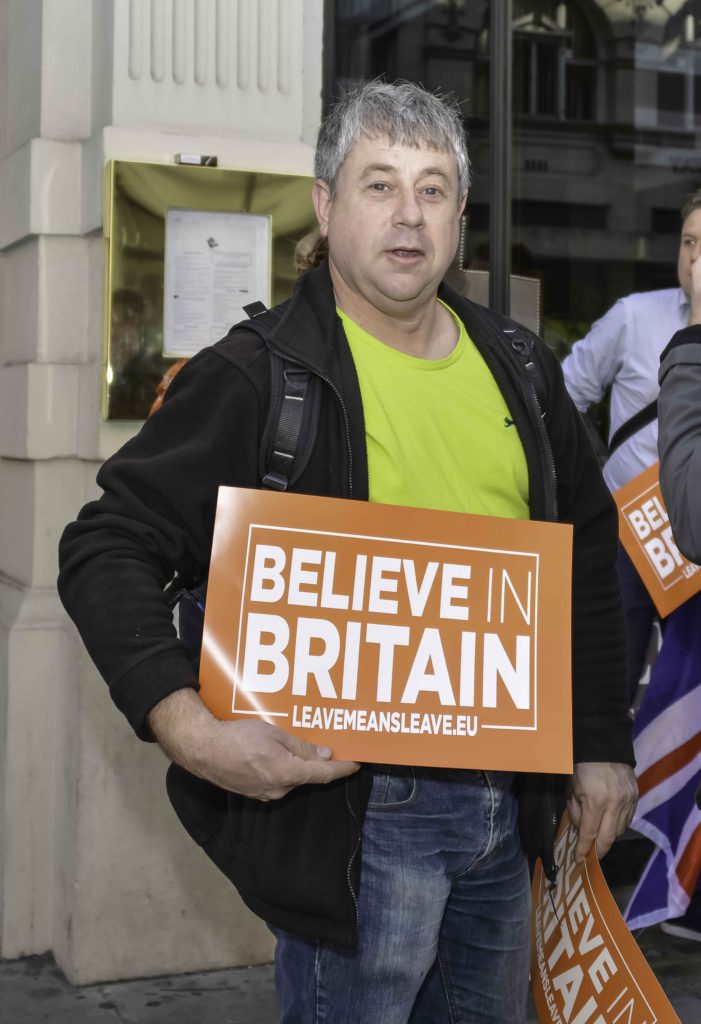
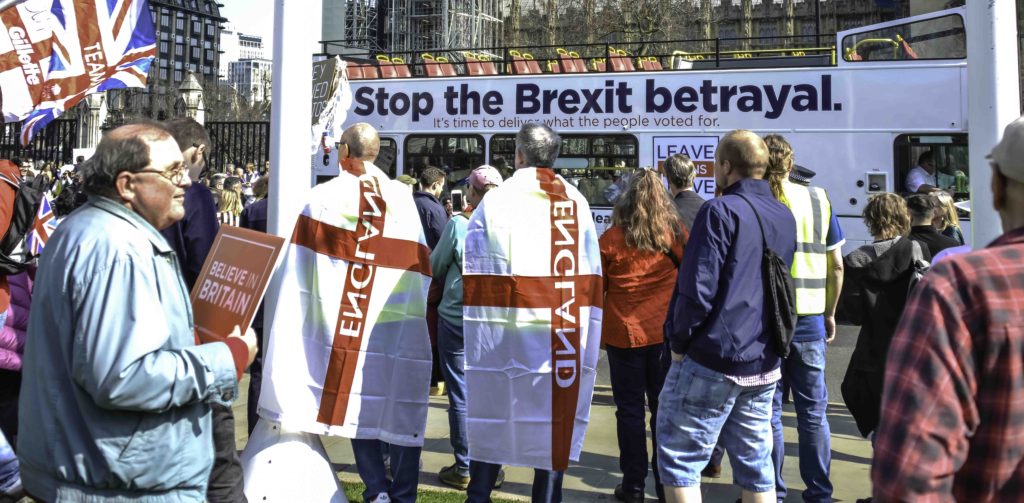
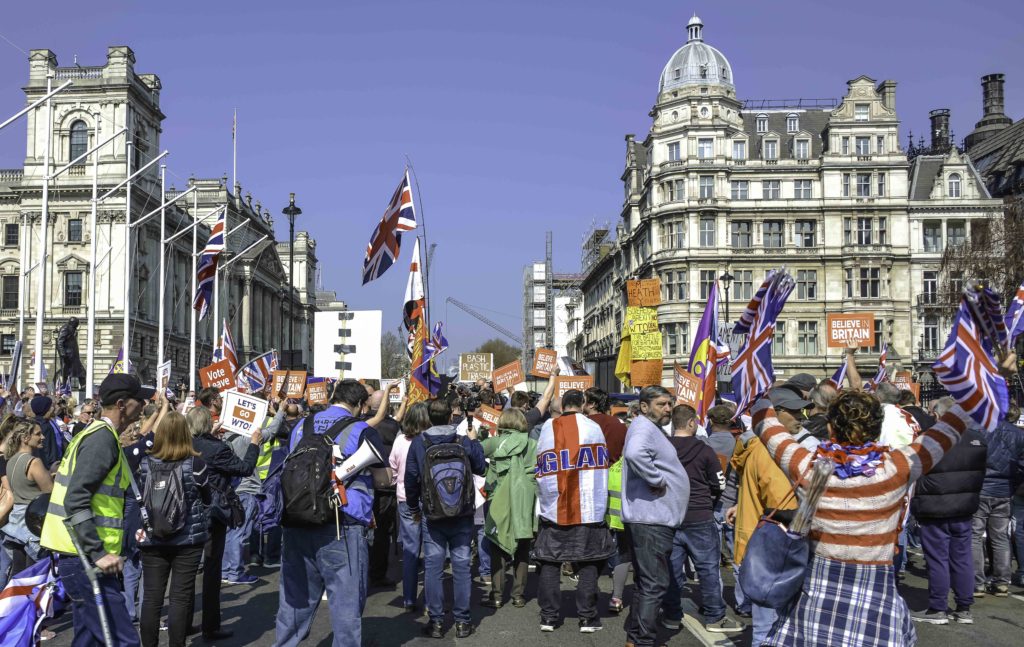
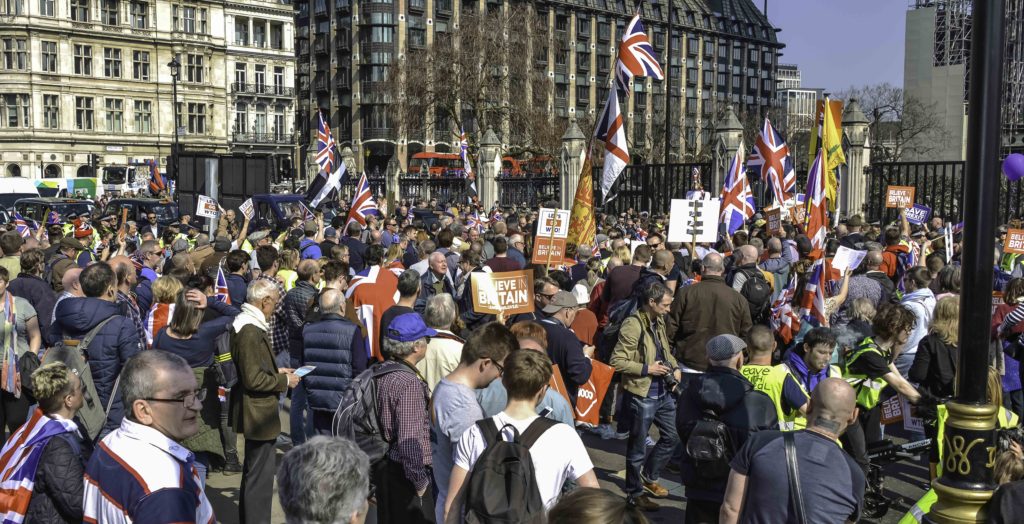
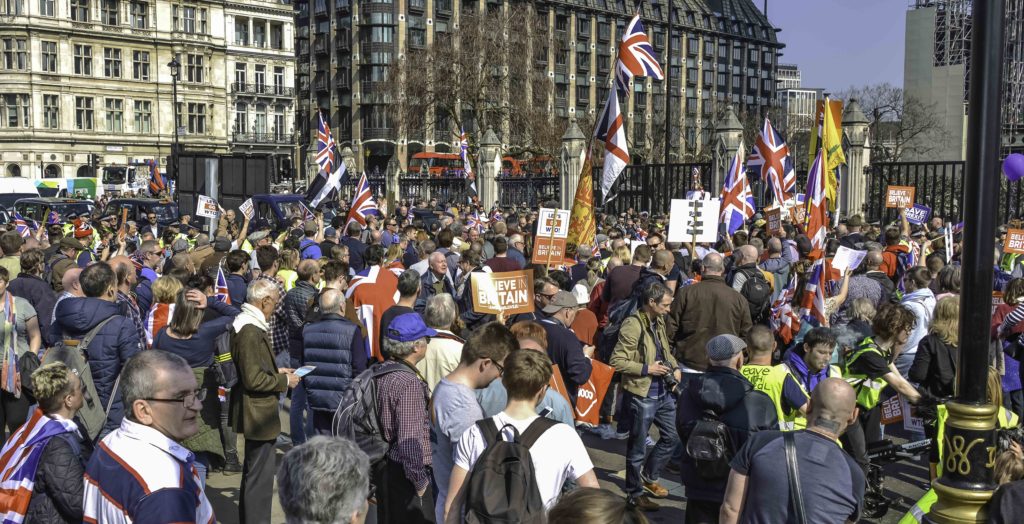
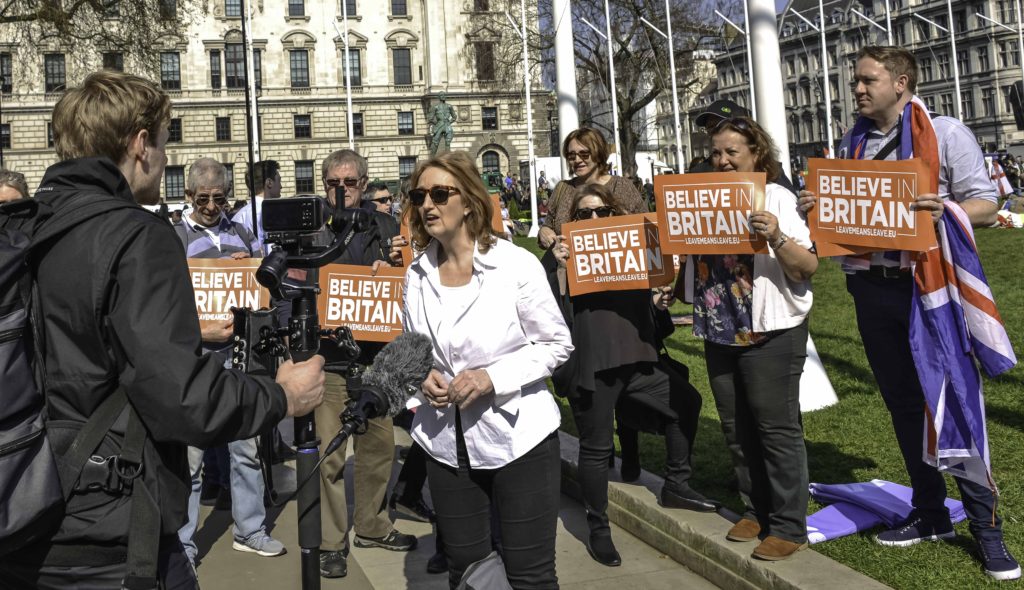
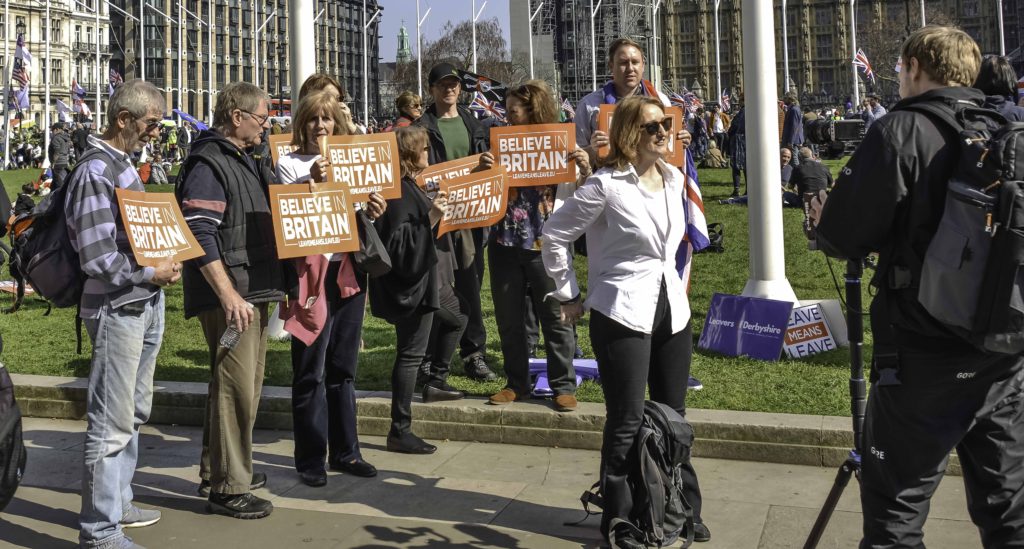
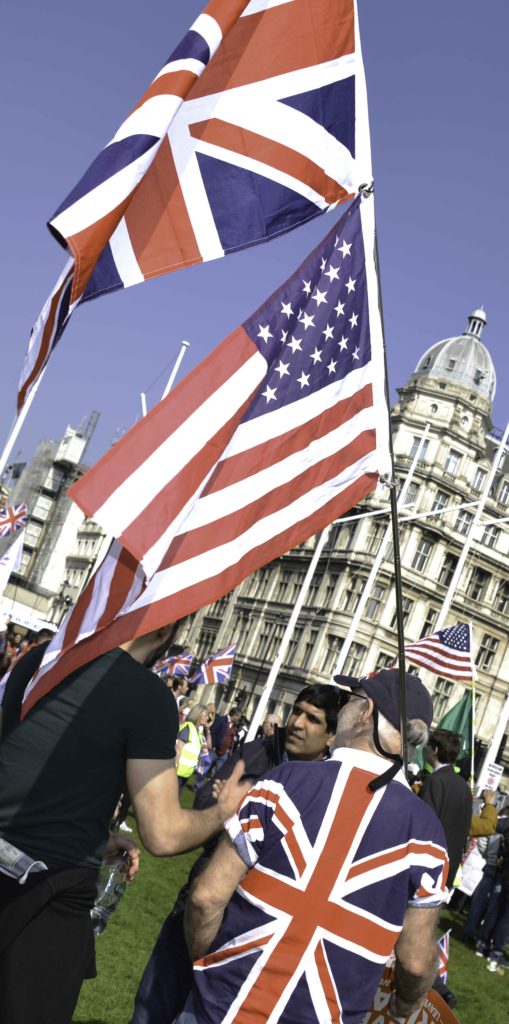
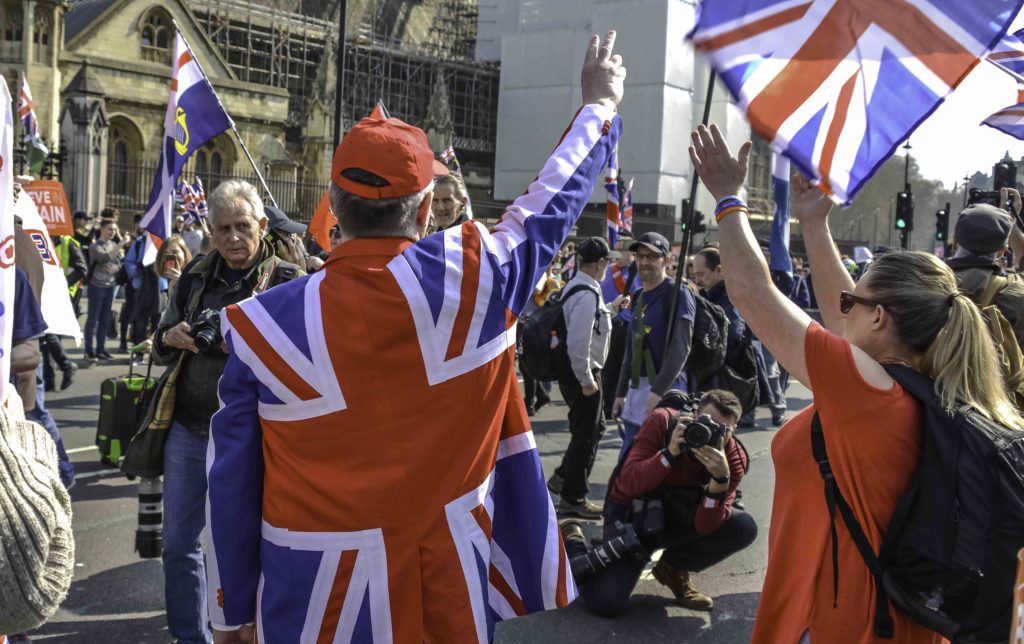
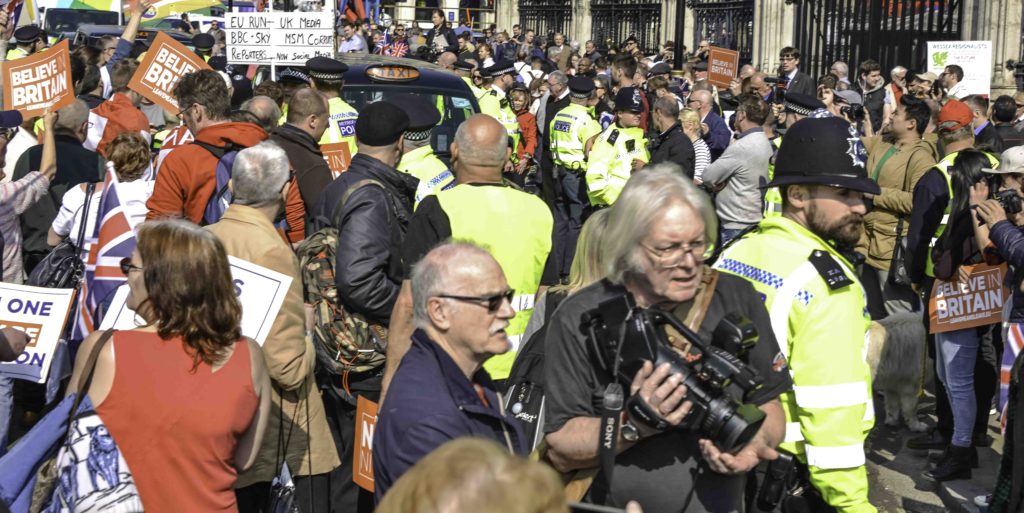
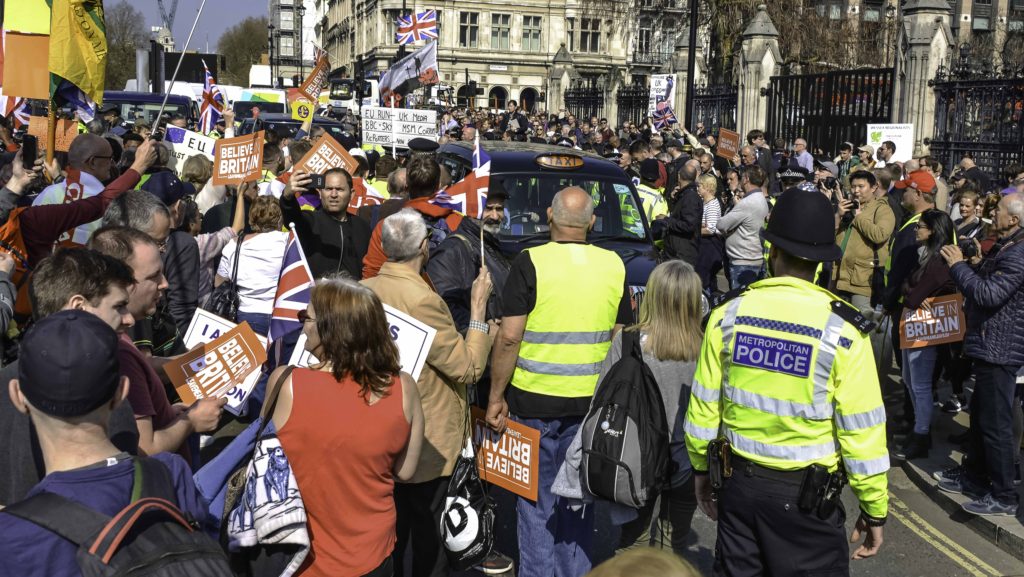
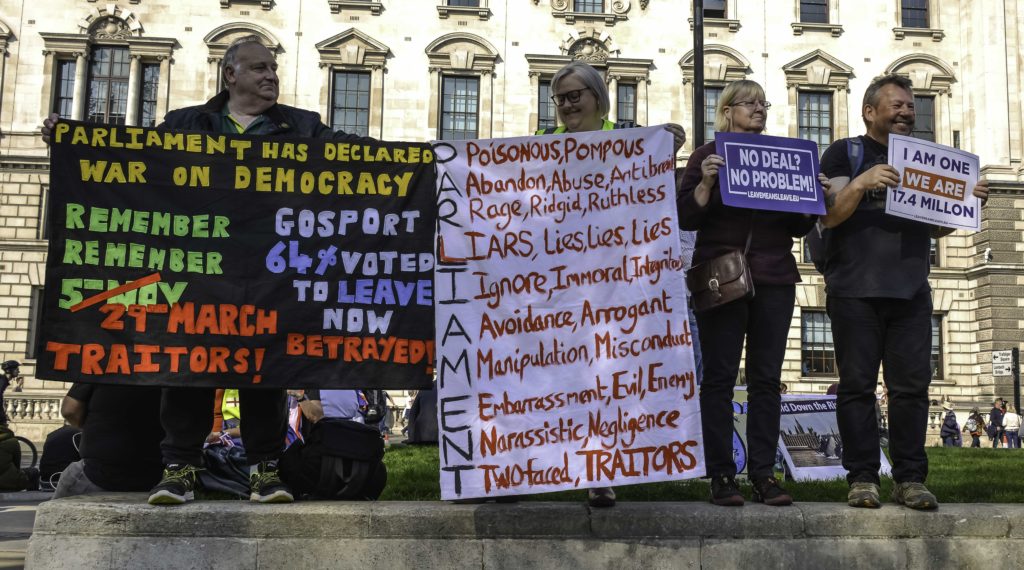
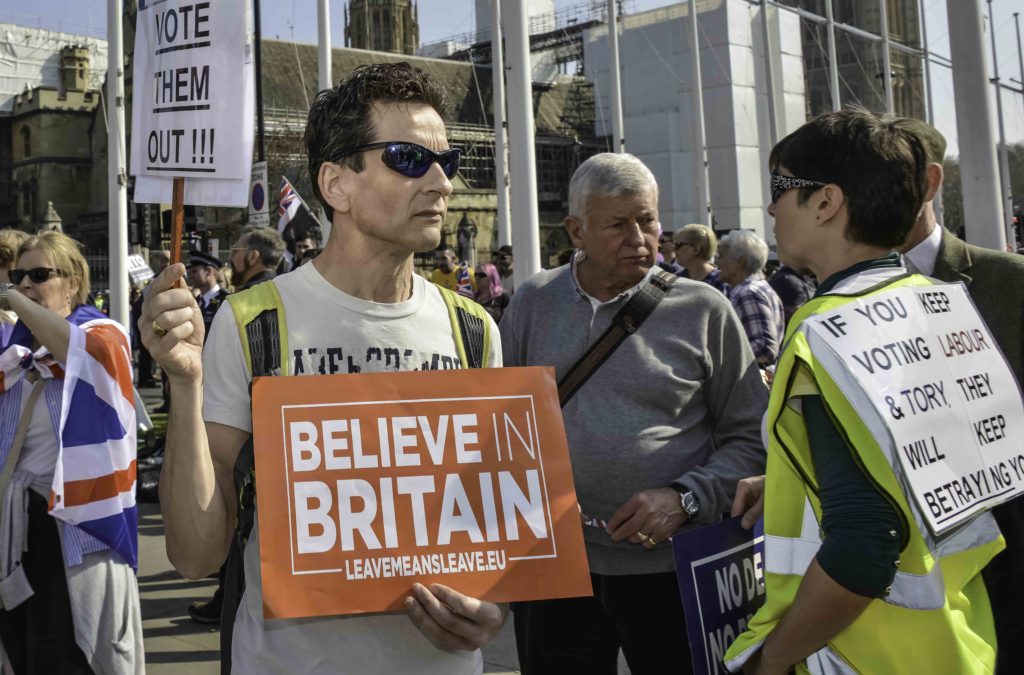
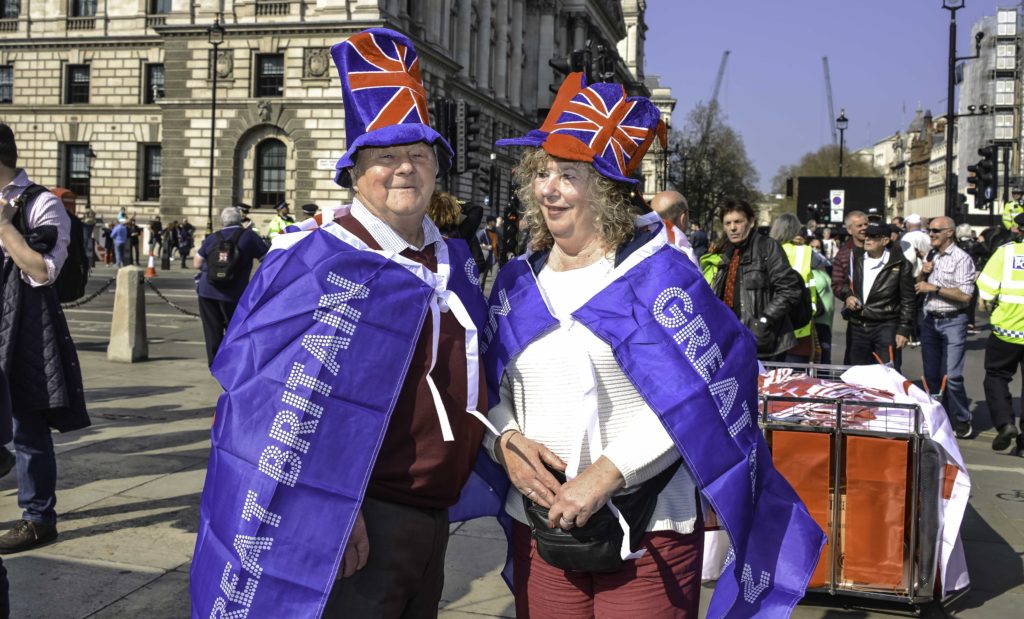
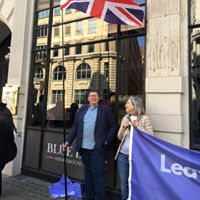
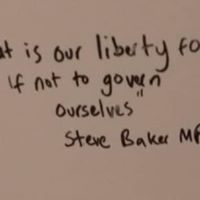
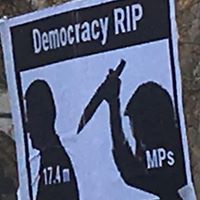
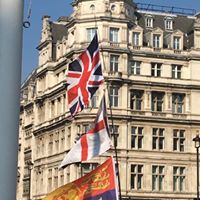
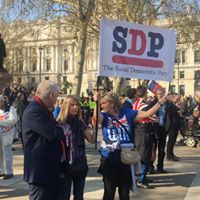
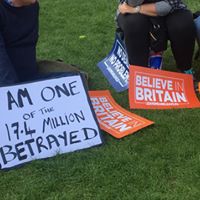
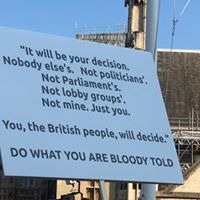
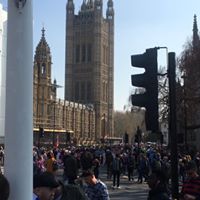

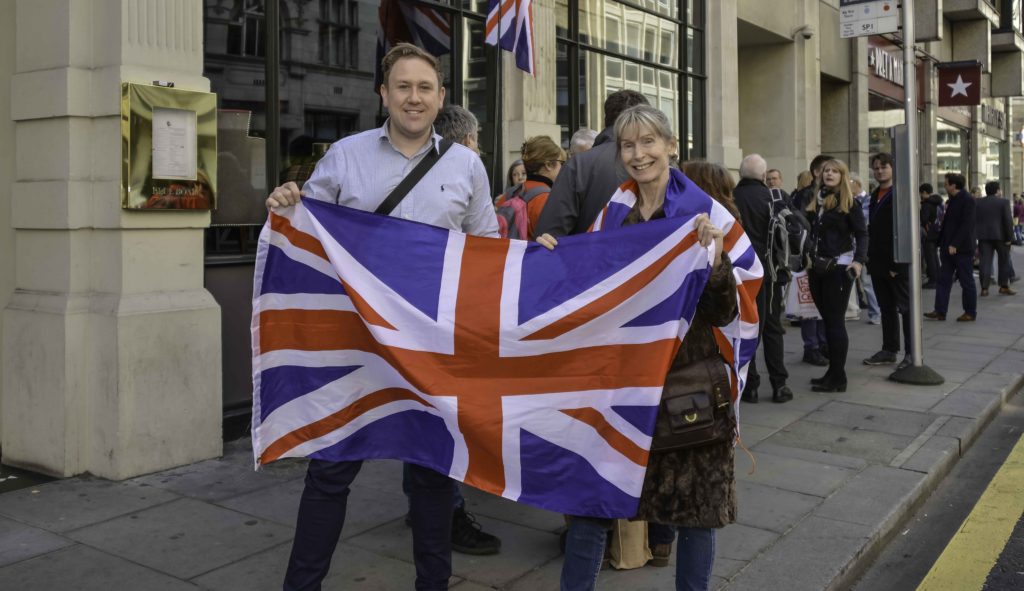

Mike Swadling appeared on Sputnik radio this week discussing the anti-democratic actions being taken in Parliament.
” we have such a viper’s nest of traitors in parliament at the moment that many of them really are willing to bring down our democracy, and vote to revoke Article Fifty”
“If we don’t leave the EU in very short order; our representatives have become our dictators, they will have ignored the biggest vote in British history, and there would be no reason to think that voting again makes any difference, and at the point they pit themselves against us, you can’t vote for change and you leave people with very few options if they want to affect change”
“She is actively bringing about the demise of the most successful party in world democratic history, and if that’s what they want to do, that’s up to them; I can’t for the life of me understand how they haven’t removed what is a terrible Prime Minister”
Full article https://sputniknews.com/analysis/201903261073527730-brexit-dekay-dictatorship/
On Saturday 23rd March, we were out in Wallington reminding Tom Brake MP that Sutton and Britain voted leave. Huge support for a WTO Brexit and making sure on Friday 29th March we leave the EU to once again become a free and independent sovereign nation.
Press Release – 17th March 2019
Two weeks ago Croydon Council once again decided to raise the tax burden on the hard working families of Croydon by the maximum of 2.99% for the council without calling a referendum. To give them the benefit of the doubt that they have not done, as to quote Sir Humphrey Appleby “pitch for as much as they think they can get away with and then think what to spend it on”, we would like to ask the council to reconsider the rise and make some savings.
Our proposals would bring down the increased tax take by 10% to a 2.69% increase in council tax. This would give more money back to stretched family budgets and remove the impression of a council treating taxpayers like fools.
To achieve this we needed to save £518,000 from Croydon council’s 2019/20 budget. We have done this with room to spare, here’s how:
The total saving here is £646,058.69. £127K more that we proposed, the council could even pay down some debt. All of these savings have been achieved without impacting a single front line service.
If these savings weren’t enough maybe the council could have saved £11 million by delivering the Fairfield Halls on budget http://www.eastlondonlines.co.uk/2019/03/outrage-as-council-exceeds-fairfield-halls-refurbishment-budget-by-11m/ or £8 million but keeping to the budget for New Addington Leisure Centre https://www.shakinghands.co.uk/news/20170720_new-addington-leisure-centre/. Of Course had Croydon’s highly paid Councillors or Directors brought either project in on budget, Council Tax could have gone down this year.
Both Labour and Tory councillors voted for the increase. The people of Croydon desperately need councillors that will represent them and their families’ budget as much as they represent councillors’ allowances
We discuss the latest shenanigans in Parliament and the impact not only on Brexit but on our constitution.
We discuss recent and upcoming Leavers of Croydon events.
We announce the Debate for Democracy that we are hosting in Croydon.
We bemoan Croydon Council’s latest tax rise and suggest some areas for savings.
Finally we comment on the recent council by-election in Norbury & Pollards Hill.
YouTube – https://www.youtube.com/watch?v=lyQ4FhLVblw&t=4s
Spreaker – https://www.spreaker.com/user/croydonconstitutionalists/podcast-7
iTunes – https://itunes.apple.com/us/podcast/croydon-constitutionalists-podcast/id1436442293?mt=2#
We visit The Skylark in South Croydon where we discuss the Leavers of Britain and our local grouping.
We also hear from Croydon Leavers as to what they are looking forward to once we have left the EU.
YouTube – https://www.youtube.com/watch?v=8BeXVNz3Yz0&t=112s
Spreaker – https://www.spreaker.com/user/croydonconstitutionalists/pubcast-5_1
iTunes – https://itunes.apple.com/gb/podcast/croydon-constitutionalists-pubcast/id1438787954#
The Croydon Constitutionalists are hosting a ‘Debate for Democracy’ of democracy honouring pro-Brexit parties in April. Representatives of the Democrats and Veterans Party, Foundation Party, Libertarian Party, SDP and UK Independence Party, will be setting out their agenda for a democratic Britain and taking part in the panel debate.
The debate will be held upstairs at the Green Dragon, 60 High St, Croydon CR0 1NA from 7pm on the 18th April 2019. All parties are pro-Brexit and honouring the biggest vote in British history. Each speaker will be given 5 minutes to talk about their party and plans for Britain free from the EU.
Democrats and Veterans Party – Neville Watson
Party spokesman for Cities, Urban Communities & Sport, Neville has been actively involved as a social / community activist for over 30 years, often fighting against the odds for social justice and equality. The party fights to ensure that the government serve the interests of the people ahead of special and foreign interests; and for the sovereign will of the British people to be asserted on our servants in Parliament – by campaigning for Direct Democracy.
Foundation Party – Chris Mendes
Party Leader Chris has declared the major political parties not fit for purpose, the country is desperately missing a party, one that is more patriotic and genuinely at the service of ordinary people rather than themselves. Chris was the Vote Leave lead in Croydon South during the referendum. The Foundation Party is a long-term project for building a serious platform for clear patriotic principles for like-minded individuals who believe that our country can do so much better.
Libertarian Party – Sean Finch
Libertarian party candidate in the Lewisham East By Election, Sean is an avid free-speech advocate. The party stands for lower taxes for both individuals and companies, small government, free speech and individual responsibility. They support free trade and free enterprise whilst believing that people should make their own choices and not rely on the government. They support a withdrawal from the European Union and a return to the free trade agreements that it was founded on.
SDP – Richard Plackett
Richard is the London and South East Regional Organiser for the Social Democratic Party. The SDP represents the radical centre of British politics today, defining the limits of the market and the state and harnessing both to rebuild Britain. The Party aims to provide a political home to all social democrats who seek a stronger and more capable state along with greater individual responsibility, trust and social solidarity.
UKIP – Hoong Wai Cheah
UKIP Croydon Chair Hoong Wai has stood in Coulsdon for recent council elections and Lewisham West in the 2017 general election. UKIP is a Party that represents freedom, freedom from the European Union, freedom from political correctness and Cultural Marxism, freedom of speech, and freedom to be proud to be British. UKIP’s mission is to show the way forward for Britain as an independent, self-governing, democratic nation. They want trade, friendship and co-operation with the world.
This is a great chance to see local representatives of parties that are growing as people are increasingly dissatisfied with the discredited politics of those in Westminster.
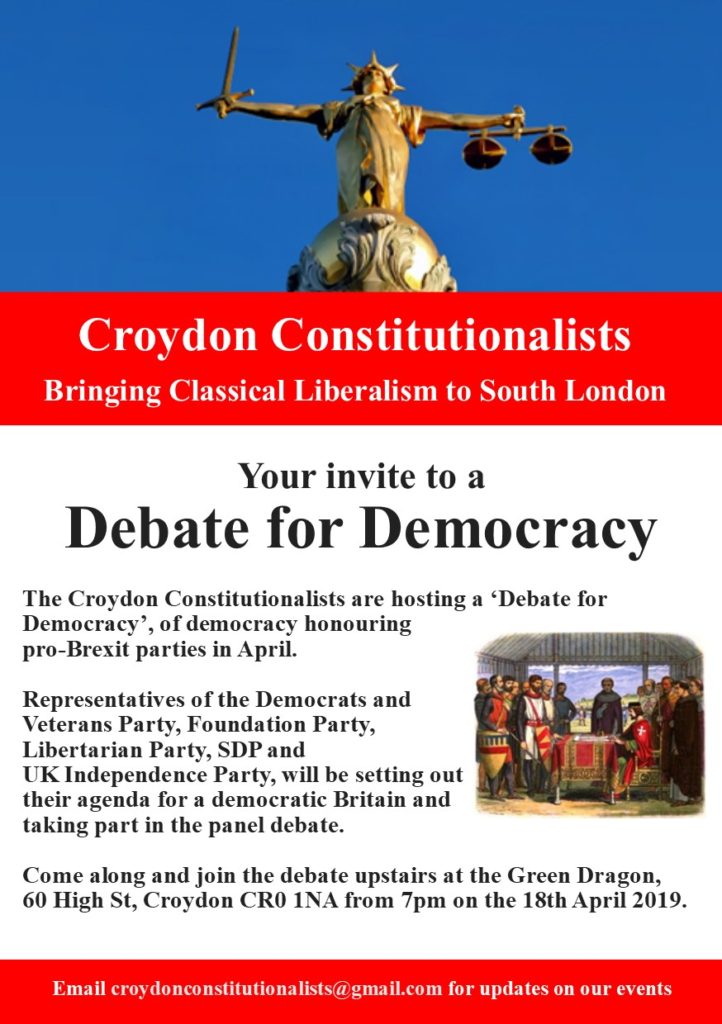
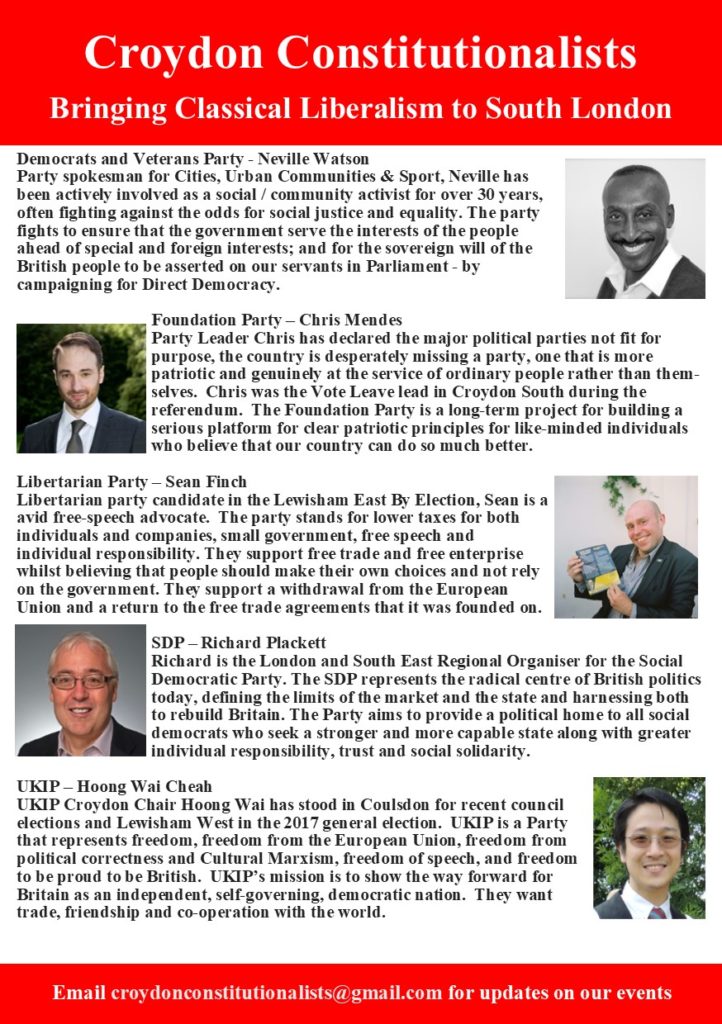
On the 29th March 11pm we are due to leave the EU. We don’t know at this stage if that time will prove to be a celebration of British independence or a wake for British democracy.
Either way we plan from 7pm to be upstairs at the Skylark 34-36 South End, Croydon, CR0 1DP to celebrate or plan the downfall of any local MPs who rebelled against democracy.
Join us for this historic event.
https://leaversofbritain.co.uk/events/brexit-celebration-wake-to-be-confirmed/
Britain voted Leave, Sutton voted Leave, but Tom Brake MP wants to break with democracy and ignore the referendum of 2016.
Join us from 11am – 1pm on Saturday 23rd March in Tom’s constituency to remind him what being a democrat is.
We are meeting outside Boots Wallington. 43 Wallington Square, Wallington SM6 8RG. Come and help get Brexit delivered.
On Friday 1st March Croydon Vote Leave lead Mike Swadling appeared on Sputnik Radio to discuss to possible extension to Article 50.
“In recent years we’ve seen greater use of referenda to make big constitutional choices; when there’s one the establishment don’t like, they are throwing away our democracy. There should be anger, there should be problems, and these people are effectively declaring war on the British people.”
Full article https://sputniknews.com/analysis/201903021072893702-uk-brexit-democracy/